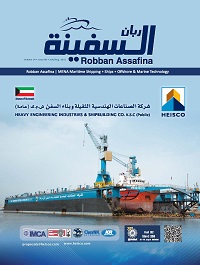Bunker fuel contamination cases are on the increase
UK P&I Club has said bunker fuel analysis indicates more cases of contaminated bunker fuel in the Rotterdam and Amsterdam areas (ARA), suggesting that the problem persists.
During July, Veritas petroleum services (VPS) issued a bunker alert regarding the same issue. VPS reported that they had investigated samples of very low sulphur fuel oil (VLSFO) taken in the ARA region following reports that vessels using these fuels were experiencing operational problems, such as excessive wear of fuel pump plungers, barrels and injectors.
One vessel lost propulsion and had to be towed, and the failure started with engines unable to take the load due to damage within the fuel system.
“Using GC-MS (Gas Chromatography-Mass Spectrometry) analysis methodology, numerous volatile organic compounds were detected within these fuel samples”, said Mr. Ghosh.
The organic compounds that were detected in these fuel samples are Phenols, Styrenes, Alcohols and Ketonic compounds, ranging up to 40,000 ppm (4%) in total. This range of combinations does not originate from normal refinery processes and indicates contamination. Phenol-like compounds are often associated with fuel pump wear and damage.
The type of problems reported by the vessels was similar to those found with the recent Singapore chlorinated hydrocarbon issues, but the contaminants were different this time.
Mr. Ghosh explained that recent analyses by VPS using samples from the same region showed that the fuels had high total acid numbers (TAN), and all contained abnormally high potassium levels. Elevated Potasium can lead to increased combustion deposits.
Due to the severity of the problems faced, it will be prudent to pre-test the fuels bunkered using accredited testing methods as a precautionary measure to detect these contaminants and assess the risk that each bunker stem poses to machinery
During an actual claim scenario, the ability to properly pursue or defend bunker quality claims depends on the quality of the evidence. “Good record-keeping is essential to the entire process, and the importance of proper bunker sampling cannot be overstated,” Mr. Ghosh said.
Source: IIMS - International Institute of Maritime Surveying
| Read Here | |
 |
|


































